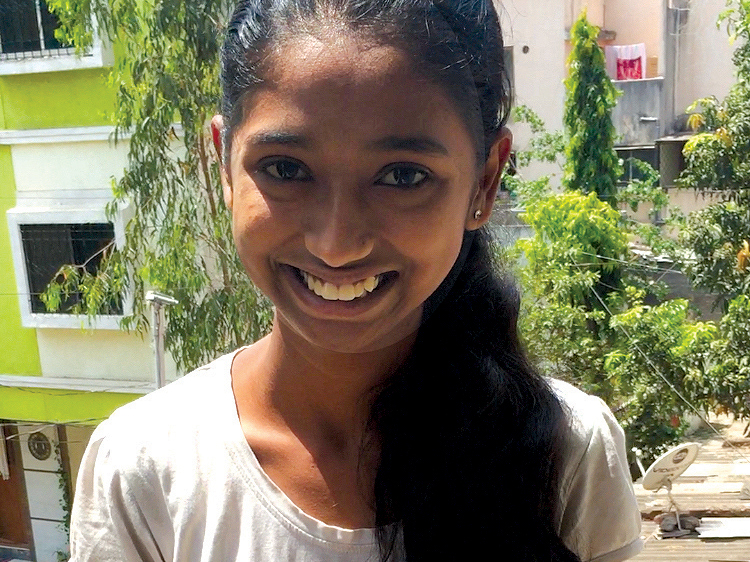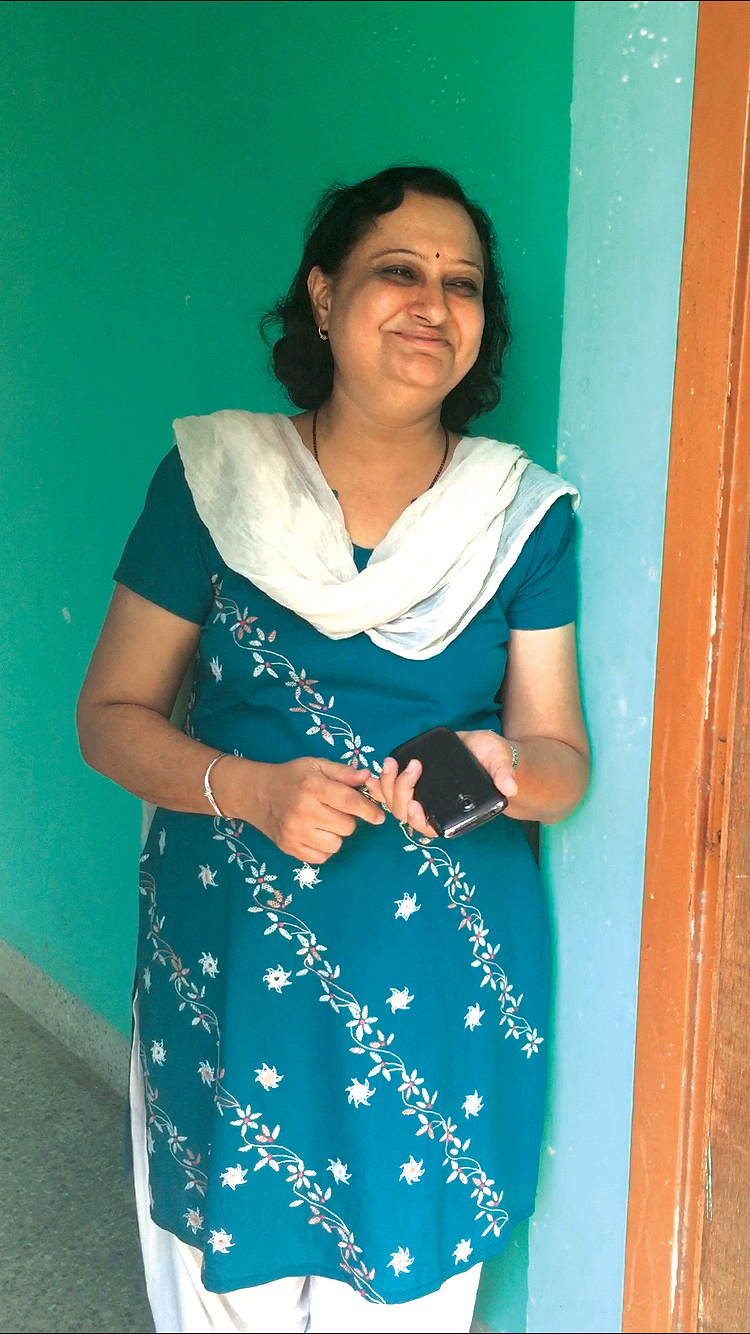
Sponsors help prevent early marriage for girls in India.
Four-year-old Rukshita lives in a shed on the construction site where her father works. Eleven-year-old Harshitha can read, but her parents can’t. Five-year-old Suman migrated to southern India from Nepal so her parents could earn $1.25 per day working as laborers.
Each of these girls, pictured in the collage above, is unique. But their stories share a similar and often troubling narrative — a narrative built around the shared experience of growing up female in modern-day India.
In India, statistics for girls are upsetting — especially for girls growing up in impoverished or marginalized communities like those you support through sponsorship. One in six girls will die before her 15th birthday. Only half will learn to read. Even fewer will graduate from high school. Although 18 is the legal age for marriage in India, the law is difficult to enforce. Nationally, about 27 percent of girls still marry before they turn 18. In rural areas, the percentage can be as high as 69 percent. When parents force girls into early marriage, they rob their daughters of their chance to dream. Child brides are more likely to have children they can’t support, more likely to face domestic violence or abuse and, ultimately, more likely to repeat the same cycle with their own daughters.
That’s why sponsors are so important for girls in India. Child sponsors help girls stay in school as long as possible, keeping them safe and giving them the best chance of breaking the chains of generational poverty.

Pilavi is 14. She dreams of becoming an engineer someday. When she talks about her sponsor — the person in the U.S. who is helping to fund her education — she gushes with gratitude in the way only a 14-year-old can. In English she says, “Because of my sponsor, I’m studying higher and higher. Thank you so very, very much for helping me.”
Pilavi is just one of more than 50 boys and girls from a slum area in Pune, India, attending a summer camp for pre-teens. The donor-funded community center is a colorful single room lined with chalkboards, map posters and artwork. Kids sit on bright woven rugs on the floor, talking and giggling in small groups. They are talking about a prompt question scribbled in ink on white paper that they drew out of a basket.
“When should a girl marry?”
Most of these teens have never been asked this question. One of the girls in Pilavi’s group says she never wants to marry. A boy adds that it is up to her parents. Another boy says that marriage should be for love. Pilavi, without a hint of her usual, chipper smile, says girls should finish school first.

Pilavi is just one of several girls in the room who knows her parents could find her a husband at any time. Her family lives nearby, in a slum community where an entire family will rent a single-room home with no electricity, no running water and no plumbing. Pilavi’s mom was married when she was Pilavi’s age.
In India, poverty leaves girls at a tremendous disadvantage. Parents assume boys will be better suited to care for the family. So, families will keep boys in school, but pull their daughters out to work and help the family earn money. They’ll wait until their sons are old enough to support a family before finding a spouse for them, but marry off their teenage daughters because it’s one less mouth to feed and one less child to care for.
“I tell moms now that their daughters don’t have to be like them. I tell them that they can get good jobs. They can marry later. Many of these families need money now, so it’s hard to see how it will pay off to keep their girls in school, but that’s what we teach them.”
Vaishali Vahikar, sponsorship director at BSSK
Today, as wealth grows in India, more and more girls are attending college, delaying marriage and growing financially stable. Recently, India also passed new laws that further criminalize child marriage — causing some parents to delay marriage for their daughter until she is at least 18. The long-term effect of Holt and other organizations working in impoverished communities has helped to lessen child marriage as well. But India’s population of children and families living in extreme poverty remains among the largest in the world. Poverty is especially harsh for women and girls, who have few protections from gender-based violence, exploitation and forced marriage.
Staying in school for as long as possible is the most effective way for a girl to remain safe. And simply paying for school fees, uniforms and supplies removes a major financial barrier — helping girls to finish their education, and avoid early marriage. While in school, girls also have the protection of their teachers.

Girls with Holt sponsors receive even more advocacy from people like Vaishali Vahikar, the director of sponsorship at Bharatiya Samaj Seva Kendra, Holt’s partner organization in Pune, India. Vaishali also oversees the community center, leads trainings for parents of children in the surrounding community, and regularly visits the homes of sponsored girls.
“I tell moms now that their daughters don’t have to be like them,” Vaishali says. “I tell them that they can get good jobs. They can marry later. Many of these families need money now, so it’s hard to see how it will pay off to keep their girls in school, but that’s what we teach them.”
Sponsors, Vaishali says, are the real heroes. Sponsors provide the ongoing support girls need to stay in school, to have advocates at home and to have spaces like the community center.
For Pilavi, this is especially true. She knows she can continue to dream about her future because of her sponsor.
Billie Loewen | Former Holt Team Member

Become a Child Sponsor
Connect with a child. Provide for their needs. Share your heart for $43 per month.





